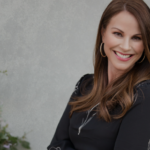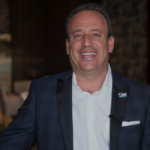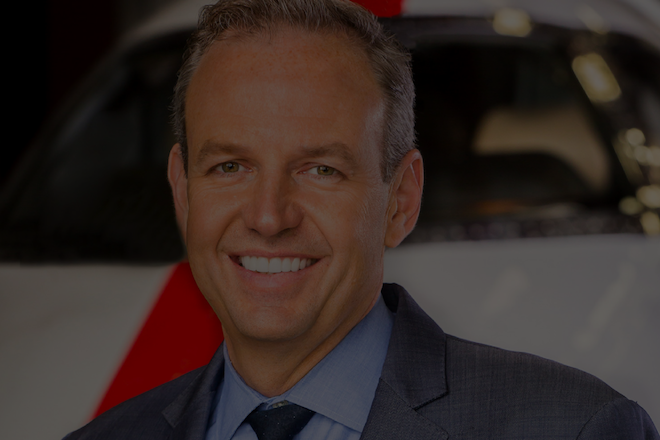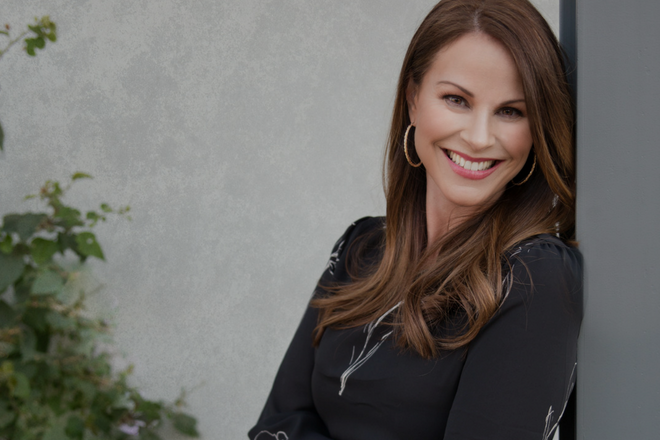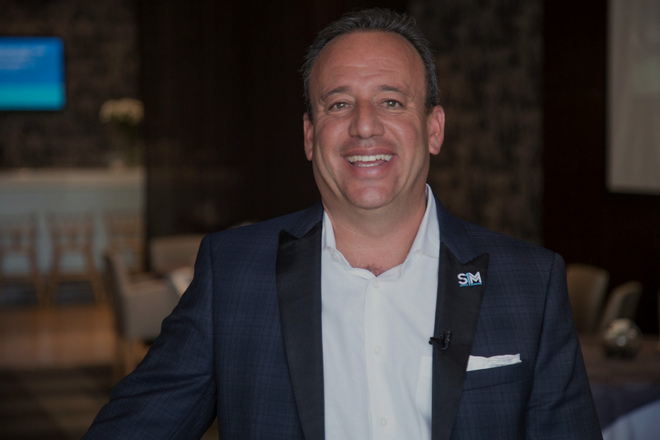“It pays to keep relationships, it pays not to burn bridges, guys, because you never know when you have to go back to the well or when there can be a strategic alliance with someone you used to work with . . . And now there’s a whole lot of things we can do now that just weren’t possible even ten years ago.“
Alex Wilcox – Co-Founder of JetBlue & CEO of JetSuite; Having the right people around you; Passion is everything; Nothing goes the way you expect
Segment 1: (Length :04:00) – General Updates; Introduction to Alex Wilcox and his journey as an entrepreneur; Starting JetBlue and now bringing JetSuite to the market
Alex’s finer points:
“Which in the late 90s is when we started Jet Blue. Our first flight was in 2000, but obviously took a couple years to cook up.”
I've been a lifelong aviation fan. I never wanted to be a professional pilot, but I always wanted to be in the industry.
“I’m a private pilot, but I don’t fly a whole lot, I just fly gliders and sea planes when I have the change, which is not very often, unfortunately, but I’m surrounded by pilots and other aviation professionals, which is always fun because there’s always something cool to talk about.”
“I’d interned for Southwest Airlines through college and then gone on … I met David Neeleman while I was working for Virgin Atlantic, and Virgin Atlantic was a great brand to be associated with in the 90s when Branson was really growing it at a rapid clip.”
“I met David because I was at Virgin Atlantic and David, who was the founder of JetBlue, wanted to start with three basic pillars on a stool, and one was a lot of capital, one was new airplanes, and one was a great brand..”
“Jet Blue was originally going to be Virgin USA, not Virgin America that exists today that just got bought by Alaska.”
“While I was a Virgin Atlantic employee, I had the opportunity to introduce him (David) to Richard Branson and others in the Virgin organization.”
The deal never got done, but David took me on as the second employee of Jet Blue, and obviously the rest is history.
“It was a great, great opportunity to go from the ground floor up, but I positioned myself with a lifelong passion that I’d already been in the business for many years at that point, and started off at the very bottom, you know, fueling airplanes and loading bags for a small airline.”
“It was, like a lot of people say, the harder you work, the luckier you get, but I certainly was very lucky in that meeting with David.”
“David today is on our board here at JetSuite, and we’ve got a board meeting next week in New York and we’ll be seeing a lot of people that helped us along the way, so it’s nice that we still have that tight relationship.”
“JetBlue was unique in that it was the first airline that started with brand new airplanes and the first live TV, first all leather seats, but most importantly it was the first low cost carrier based in New York City where they still exist today.”
“They’ve definitely done a great job recently, upgrading the product, modernizing the product. It was modern in its time, but now they’re doing even more great things. Now I’m happy to say that last October, they actually invested in JetSuite.”
It pays to keep relationships, it pays not to burn bridges, guys, because you never know when you have to go back to the well or when there can be a strategic alliance with someone you used to work with.
“It is a frothy time in the business because of all the new technology that’s out there and new ways of what we call distribution which is the ways of selling seats to consumers, getting them out there in the space, and obviously with the power of apps and iPhones and things.”
Segment 2: (Length :08:00) – Talking with Alex Wilcox; Staying innovative and forward moving; making the right strategic partnerships;
Alex’s finer points:
There's a whole lot of things we can do now that just weren't possible even ten years ago.
“First, Jet Blue is definitely dedicated to innovation and I think that’s the thesis behind their investment in JetSuiteX, they want to their eye on people who are doing things differently.”
“Secondly, you’re absolutely right and I think you had a guest on a while ago, a friend of mine, Sergey (Petrossov) from JetSmarter, and he’s really doing amazing things in terms of making the industry more accessible to more people and we’re trying to get a deal done with Sergey and make some of our fleet available to his customers as well, and we’ll see how that goes.”
“JetSuite, our private jet thing, we kind of straddle the space that Sergey’s in, so we have the super high end airplane charter, you know CJ3s, and that’s kind of a $5000 an hour product, which is a one tenth of 1% kind of product.”
“Then JetSuiteX is the other end of the spectrum and that comes in below where Sergey is, and he’s kind of in the middle sharing the private jets. JetSuiteX, as you said, I mean, fares start at $29 and that’s a very hard fare to get, by the way.”
the beauty of the JetSuiteX thing is it's not a private jet because there's 30 people on it, but it is private ground. You don't go to the main terminal, you know, you roll up to our private hanger and 15 minutes later you're in the air.
“There’s none of the big airport hassles, there’s no security lines, there’s no boarding cattle calls, there’s none of that stuff. It’s a private ground experience even though you’re sharing the jet with 30 other people which is how we keep the costs affordable so it’s kind of a private jet for 30 if you like.”
“Once you’re in the air, every jet plane flies about the same speed, but it’s how hard it is from the car to the plane then back to the car on the other end that makes the difference and that’s why we created JetSuiteX.”
“Well, you know, in rapidly changing markets such as ours when someone new comes on the scene like Sergey, you got to decide is this friend or foe. Is this a disruptor that’s going to disrupt you? Then you got to say do I beat him or try to join him, but we’re actually in very different parts of the market.”
“I mean, he is the most sophisticated by far distributor of private jet products in the marketplace, but he’s not actually an operator, so we’re actually symbiotic. I mean, we provide a lot of lift and we’ve got a strong brand of our own that we’re very proud of and we sell directly to consumers.”
“I think he would take a position that he can get us more business because he can lower the price point by dividing it by the number of seats because he can get more people onboard than we can. We only sell whole airplane private jets.”
He has very, very intelligently figured out how to divide up a jet and there's a whole lot of arcane rules around how to do it and he's got the time and the talent on his team that they've figured out how to do it, both from a legal, FAA, DOT framework, and a practical framework.
“It’s all about adaptability and being able to change with a changing landscape.”
Segment 3: (Length :10:00) – Adapting to the unexpected; Having a vision for the future; Having the right people around you.
Alex’s finer points:
“I think the second part of the show here we’re going to talk about why things are never what you expect them to be. That means you’ve got to get the right kinds of people, you know, so obviously when we’re hiring, we’ve got very specific ways that we hire and specific roles that I’m happy to talk about that, but number one, you’re looking for adaptable people, adaptability.”
Even our pilots, they don't know where they're going to be tomorrow. If you're an airline pilot, you know what your schedulee is 60 days in advance. If you're a JetSuite pilot, you might be in Maine today and Cabo tomorrow, or Alaska today and Key West tomorrow. You have no idea where you're going to be.
“We flew to over 700 airports last year, so even at a basic operating level, you know, the product, the pilot better be adaptable because it could be a two AM flight on Tuesday and a noon flight on Wednesday, in winter flying environment in the morning and a tropical flying environment in the afternoon.”
“Adaptability is key for a charter pilot in a way it isn’t, because the predictability just isn’t there the way that is for a corporate or airline pilot.'”
“You’ve got to have intelligence, of course. You can be adaptable as hell, but if you don’t know what to do when you get there, it’s not worth much.”
You'd better be passionate if you want to succeed because if something doesn't get you out of bed, then you're probably doing the wrong thing.
“If you’re not excited to go to work when you’re waking up in the morning, then you probably should look for a different line of work.”
“We screen for adaptability, we screen for intelligence, and we screen for passion. We actually do it in the reverse order.”
“We have a fairly clear vision of what we want to be, our 20/20 vision three years from now, we want to be the most reliable airline in the world.”
“We want to have happy people who are serving happy customers, and we want to be the biggest brand in our segment of the market. We want to be creating a lot of wealth and sharing it with the people that are creating it.”
I think that's a vision that people can sign on to, and there's also some tactical stuff in there. We want to be operating with very simple but robust procedures and technologies that allow us to deliver what it is we promise to the client.
“There’s a million ways to screw up in this business. Any one of a thousand things can go wrong in a charter flight for which a guy’s paying $10000 maybe to fly for an hour and a half, does not go off as planned. There’s only one way to get them all right, but a lot of it’s outside of our control between weather and mechanical issues, airports being open or not.”
“I hear from marketers all the time that, ‘Oh, you guys are too corporate, you’re too straight.’ Would you really want an airline that plays fast and loose? There’s a certain level of hygiene and safety that people need.”
“Do I think we’ve got more than your typical organization? Yes. Do I think we’ve got more passionate people than your average organization? Absolutely. More intelligent, definitely, and more adaptable, without a doubt. That’s because we try very hard to screen for those qualities and when people don’t have them, then we act accordingly.”
I think I'm passionate about getting the stupidity out of the industry.
“I’m not impolite customer at all, but I frequently get so frustrated at the stupidest things that slow us down when we’re traveling. 90% of my travel is commercial, our private jets are for the customers. I don’t use them that often unless there’s really no other way of completing a trip.”
“I get annoyed, and there’s so many things that are such a way that don’t need to be that way, so kind of questioning the received knowledge or just the dogma of how things are done.”
“Used to be you needed a boarding pass, now you can get on your phone. Something as simple as that, or something as complicated as why does the airline, which is operating both flights not know that I’m connecting and not have somebody waiting for me at the gate to get me on there?”
“Why do I have to wait 30 minutes to not see my bag come out when the airline already knows that it’s still at the last station? Why can’t they just send me a text and say, “Hey, sorry, we forgot to load your bag. It’s on FedEx, here’s the tracking number, it’ll be on your doorstep tomorrow morning. Go straight home when you land.”
“So many stupid things that cause so much frustration every single day, and this is a pretty mature industry in terms of the airline side of things, and yet they still get the basics wrong every single day.”
You got to be a little bit fearless in your marketing and in your approach as well if you actually want to create the share and the demand that required to make this kind of business succeed.
“Costs a lot to fly empty airplanes around, and if you can’t get the word out before the cash runs out, then you’re going to have a real problem. That’s where our hyper focus is. We’ve created a product, now we’ve got to tell everybody about it, and we’ve got passionate people.”
Segment 4: (Length :03:00) – Hustler Thought of the Day:
I’ve seen billionaires get reduced to tears and others make hundreds of millions. It’s all about the idea, the balance sheet and the backers. If you have a single good idea, as Southwest Airlines has proven over 50 years, you can make money by choosing one part of the market and sticking to it. - Alex Wilcox
GENERAL NOTES:
Alex Wilcox – Co-Founder of JetBlue; CEO of JetSuite
- With over two decades of experience in creating highly innovative air carriers in ways that have improved air travel for millions.
- Also a founder of JetBlue, Alex was a driving force behind many airline industry changing innovations, including the implementation of LiveTV on board and all leather coach seating. Alex was also named a Henry Crown Fellow by the Aspen Institute.
- Alex Wilcox now serves as CEO of JetSuite – a private jet airline which launched operations in 2009.
- In co-founding JetSuite in 2006, Alex brought new technology and unprecedented value to an industry in dire need of it. JetSuite is a launch customer for the Embraer Phenom 100, an airplane twice as efficient and more comfortable than other jets performing its missions.
- JetSuiteX a new public charter operator, is a private jet experience offering regular daily flights between major west coast city pairs including LA and San Francisco. These flights can be purchased by single seat, providing the comforts of private jet travel for the price of a traditional airline seat. One-way fares start at $29 each way.
- Fleet is comprised of 10 Embraer 135 aircraft, featuring 30 seats with 36-inch seat pitch, free WiFi and in-flight entertainment.
- Partnership with JetBlue – JetSuiteX customers can earn TrueBlue loyalty points good for award travel on JetBlue. Unlike other alternative carriers, JetSuiteX clients don’t need to sign up and pay for a monthly subscription or travel in small propeller airplanes.
- Additional routes to be announced soon to major western markets, including San Diego, Santa Barbara, and Phoenix.
###
